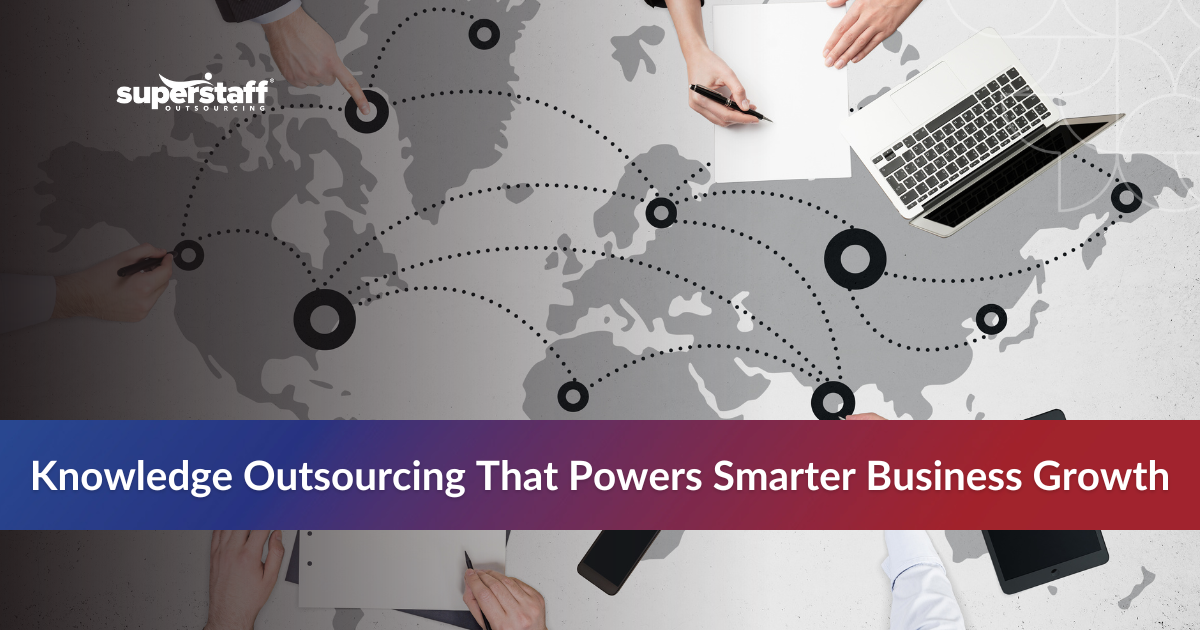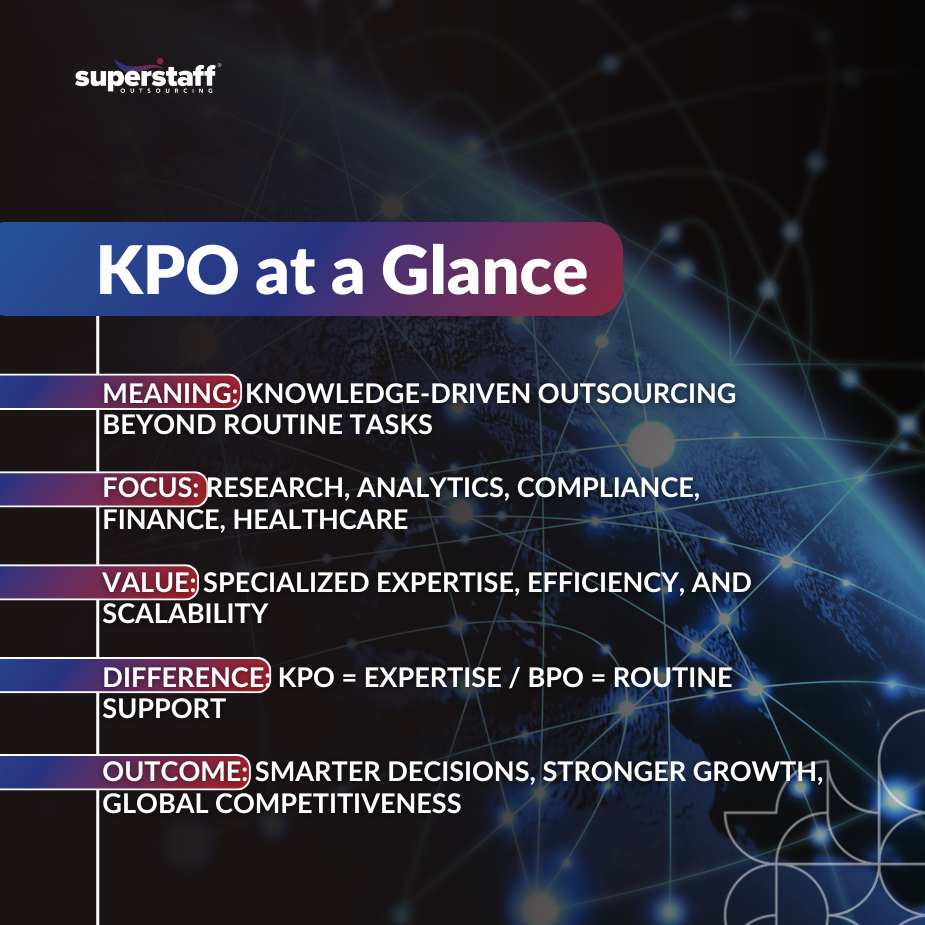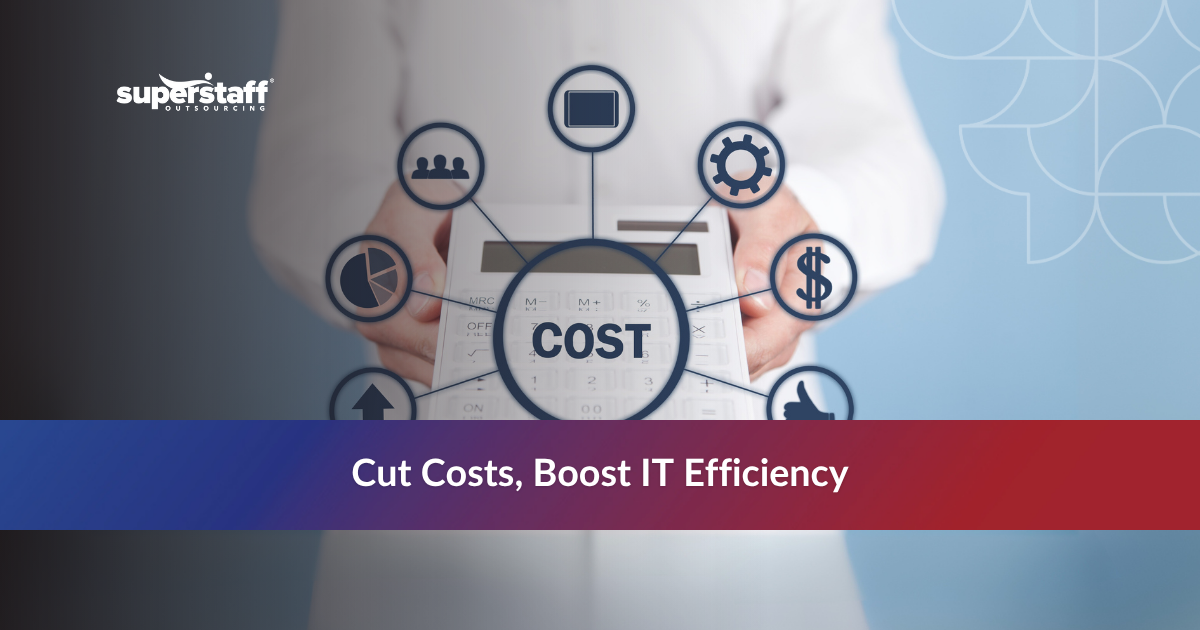
Businesses today compete in environments where knowledge and data are as valuable as capital. Traditional outsourcing once focused on repetitive or administrative processes. Now, many companies look for something deeper: expertise that drives strategic growth. This is where KPO services come in.
Knowledge Process Outsourcing provides specialized support in areas like research, analytics, and compliance. Unlike routine outsourcing, KPO is built on advanced skills and industry knowledge. Companies that adopt this model gain access to talent that helps them make informed decisions, optimize operations, and stay competitive.
This article explains what KPO services are, how they differ from BPO, and why they are becoming an essential part of business strategy worldwide.

What Is Knowledge Process Outsourcing?
Before exploring the benefits, it is important to define the meaning of KPO clearly.
1. What is KPO?
Knowledge Process Outsourcing refers to delegating high-value, information-based tasks to external providers. These tasks require specialized expertise such as market analysis, financial modeling, or legal research.
2. How KPO Differs from BPO
Many businesses ask: What is knowledge process outsourcing vs business process outsourcing?
- BPO (Business Process Outsourcing) covers routine tasks like customer support or payroll.
- KPO (Knowledge Process Outsourcing) focuses on advanced, decision-driven tasks requiring domain knowledge and analytical skills.
3. Why Businesses Adopt KPO
KPO allows organizations to access skilled professionals without building large in-house teams. This reduces costs while improving access to specialized knowledge.
4. Global Demand for KPO
As industries become more complex, the demand for KPO services continues to grow in fields like finance, healthcare, engineering, and legal support.
5. Example of KPO in Action
A healthcare company may outsource clinical data analysis to a KPO partner, allowing internal teams to focus on patient care while experts manage regulatory and research-related work.
Types of KPO Services
KPO covers a wide range of specialized functions. Here are the most common categories.
1. Market Research and Analytics
Companies rely on KPO providers to gather, process, and interpret market data. These insights support product development, competitive analysis, and business expansion strategies.
2. Financial Services and Investment Analysis
From risk assessment to portfolio management, KPO services in finance provide detailed research that helps firms make sound investment decisions.
3. Legal Process Outsourcing (LPO)
Law firms and corporations outsource legal research, contract management, and compliance monitoring to reduce costs and improve efficiency.
4. Healthcare and Life Sciences Research
KPO partners assist with clinical trials, medical coding, and healthcare data analysis, supporting better patient outcomes and compliance with industry regulations.
5. IT, Engineering, and Design Services
Technical KPO includes tasks like R&D, software architecture, and product design, giving companies access to expertise they may not have in-house.
Benefits of KPO Services
Adopting KPO provides businesses with long-term value beyond cost savings.
1. Access to Specialized Expertise
KPO providers supply professionals with advanced qualifications in fields like finance, law, or engineering.
2. Cost Efficiency Without Compromising Quality
Businesses save on recruitment and infrastructure costs while maintaining access to skilled talent.
3. Scalability for Growth
KPO services allow companies to expand support quickly when new opportunities arise, such as market entry or product launches.
4. Better Decision-Making
With data-driven research and insights, companies can plan strategies based on facts rather than assumptions.
5. Competitive Advantage
Organizations that integrate KPO into their workflows can respond faster to market shifts and client needs.
Key Considerations When Choosing a KPO Partner
Not all outsourcing providers offer the same level of expertise. Selecting the right partner is essential.
1. Domain Expertise
Ensure the provider has proven experience in the industry relevant to your business.
2. Data Security and Compliance
KPO involves handling sensitive information. Strong compliance and risk management frameworks are non-negotiable.
3. Track Record of Success
Look for case studies, references, or measurable results that show the provider’s ability to deliver.
4. Communication and Collaboration
Consistent reporting, feedback systems, and cultural compatibility help strengthen the outsourcing relationship.
5. Scalability and Flexibility
Choose a provider that can grow with your business and adapt as requirements change.
How KPO Supports Long-Term Growth
KPO is not only about outsourcing tasks. It is about building smarter strategies that create value.
1. Focus on Core Strengths
When businesses offload specialized processes, they free up time for leadership to focus on innovation and strategy.
2. Integration with Digital Transformation
KPO partners often provide technology-enabled insights that support automation, analytics, and process optimization.
3. Risk Reduction
With experts handling compliance and regulation, companies reduce risks linked to errors or missed requirements.
4. Global Talent Access
Businesses gain access to skilled professionals from outsourcing destinations like India and the Philippines. Many companies prefer to outsource to the Philippines due to its large pool of highly educated professionals with strong English proficiency.
5. Long-Term Partnerships
A well-managed KPO relationship evolves into a partnership that supports sustained growth over years.
Evaluating Success in KPO Engagements
Measuring the impact of KPO requires a structured evaluation.
1. Review Key Performance Indicators (KPIs)
Track how outsourcing contributes to efficiency, accuracy, and cost reduction.
2. Assess Service Quality
Ensure reports, analyses, and deliverables meet agreed standards.
3. Monitor Return on Investment (ROI)
Compare the costs of outsourcing with the business value created.
4. Gather Client and Team Feedback
Feedback from both internal stakeholders and external clients helps identify strengths and weaknesses.
5. Adapt Over Time
Outsourcing strategies should evolve with business goals, ensuring long-term relevance.
Knowledge-Driven Outsourcing for Smarter Growth
KPO services provide businesses with the expertise and insights needed to stay competitive in fast-changing industries. By focusing on high-value processes, KPO helps organizations cut costs, make better decisions, and scale operations effectively.
Companies considering this model should carefully choose partners with strong compliance, proven industry knowledge, and the ability to adapt to long-term goals. SuperStaff, for example, has built experience in supporting industries through research, analytics, and secure outsourcing processes.
Outsourcing success is not only about transferring tasks. It is about creating structured, knowledge-driven partnerships that add measurable value. With the right approach and the right partner, businesses can achieve stronger performance and sustainable growth through KPO.






